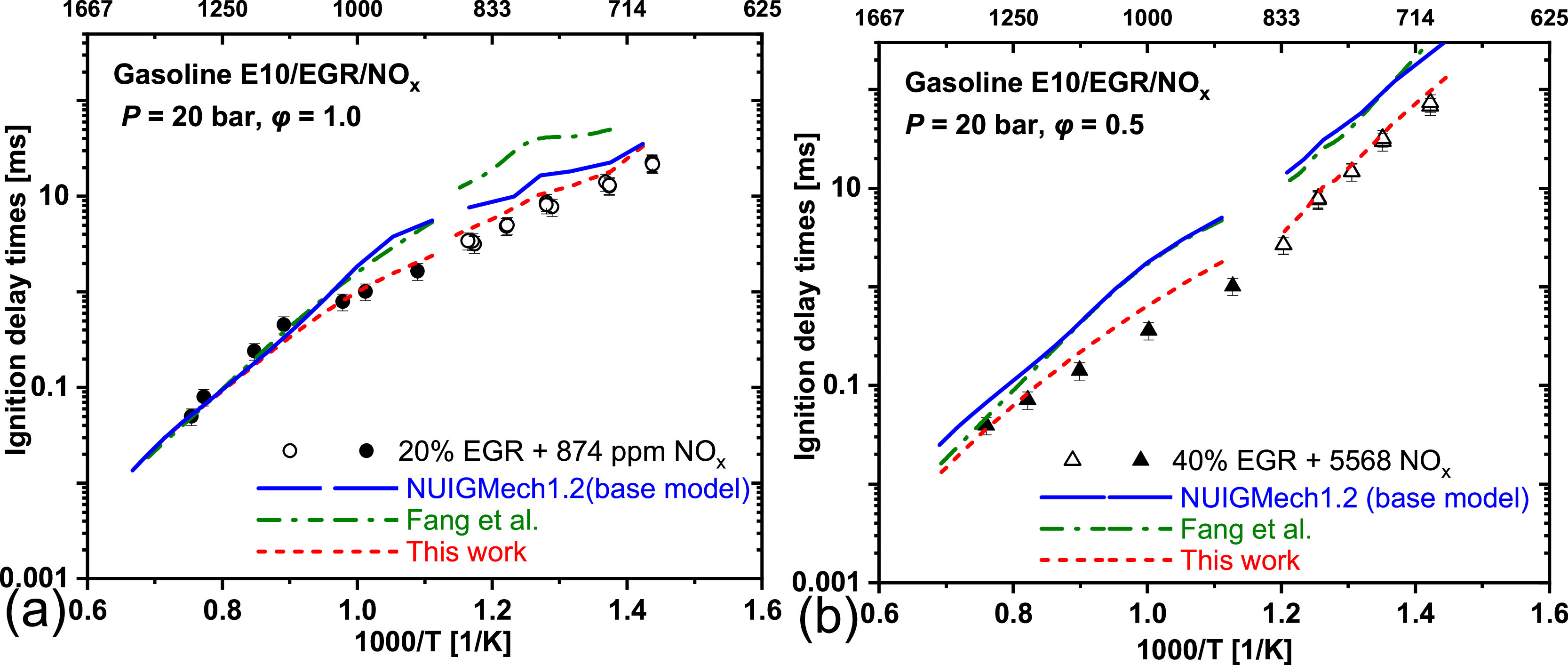

.png?sfvrsn=1b6bae1a_0) (FASTER)
(FASTER).png?sfvrsn=ac211bda_0)
The project aims to improve the understanding of fuel reactivity in modern combustion engines, contributing to more efficient engine designs with lower emissions. By addressing the effects of EGR and NOx on autoignition, this work supports advancements in emission control and combustion efficiency, which are critical for reducing environmental pollutants such as NOx, soot, and unburnt hydrocarbons.
The research explores the ignition delay times of an oxygenated gasoline blend (Euro 6 E10), using EGR and NOx under various conditions. Experiments were conducted in high-pressure shock tubes and rapid compression machines, covering a wide range of temperatures, pressures, and equivalence ratios. The findings provide new insights into how EGR and NOx additions influence fuel reactivity and autoignition, especially in low- and intermediate-temperature regimes.

Ignition delays of Euro 6 E10 gasoline/EGR/NOx mixtures.
Impacts: